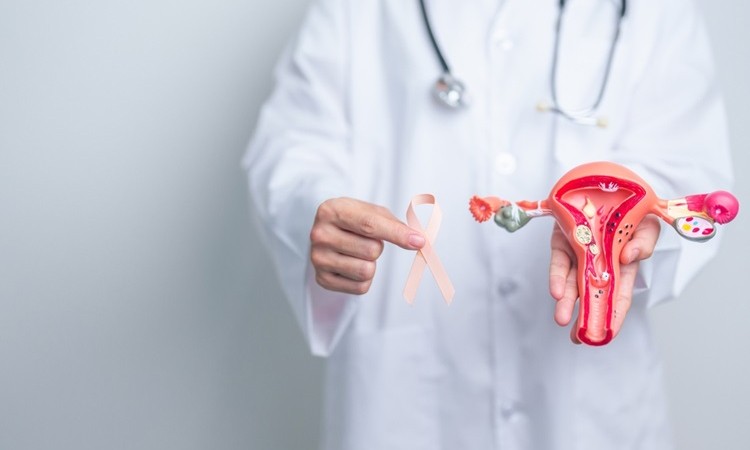Empowering Women's Health: India's Stride Against Cervical Cancer
Empowering Women's Health: India's Stride Against Cervical Cancer

Cervical cancer is a pressing concern for women's health globally, with India bearing a disproportionate burden of the disease. It stems mainly from specific strains of the human papillomavirus (HPV), a sexually transmitted infection. The virus can lead to the development of abnormal cells in the cervix, which, if left untreated, can progress to cervical cancer. This disease progresses slowly, often taking 15 to 20 years to develop fully. In India, cervical cancer claims the lives of approximately 70,000 women annually, making it the second leading cause of cancer deaths among women in the country. The prevalence of cervical cancer underscores the urgent need for effective prevention strategies to combat this preventable illness.
The Role of Cervical Cancer Vaccination
Vaccination against HPV plays a pivotal role in preventing cervical cancer. HPV vaccines are designed to protect against the most common HPV strains that cause cervical cancer. However, access to these vaccines in India has been limited due to their high cost. Recognising the importance of making vaccination more accessible, the Indian government, in collaboration with the Serum Institute of India (SII), has initiated the development of Cervavac—the country's first domestically manufactured HPV vaccine. This groundbreaking initiative aims to democratise access to affordable vaccination, providing long-term protection against HPV infections and cervical cancer. The availability of indigenous HPV vaccines represents a significant step forward in the fight against cervical cancer and promises to improve women's health nationwide.
Benefits of Cervical Cancer Vaccination
The introduction of Cervavac marks a significant milestone in cervical cancer prevention in India. By integrating the vaccine into the national immunisation program, millions of young girls aged nine to 14 will receive protection against HPV-related diseases. This initiative not only saves lives but also reduces the financial burden on families and healthcare systems. health insurance can further support families in accessing preventive healthcare measures, ensuring comprehensive coverage for cervical cancer vaccination. Through indigenous HPV vaccines, India aims to safeguard the health and futures of its female population, promoting a healthier society overall.
Importance of Cervical Cancer Prevention Strategies
While vaccination is crucial, a comprehensive approach to cervical cancer prevention also includes screening and early detection. Despite WHO recommendations for routine cervical cancer screenings, uptake remains low in India. Health insurance policies can play a vital role in promoting preventive healthcare by covering the costs of screening tests and treatments. Additionally, awareness campaigns and community outreach efforts are essential to educate women about the importance of regular screenings and HPV vaccination. By promoting proactive healthcare-seeking behaviour and providing comprehensive coverage through health insurance and critical illness insurance, India can detect and treat cervical cancer at an early stage, reducing the burden of the disease and saving lives.
Challenges and Solutions to Prevent Cervical Cancer in India
India faces various challenges in cervical cancer prevention, including the delayed development of indigenous HPV vaccines. However, stakeholders recognise the importance of addressing these challenges and leveraging India's capabilities to accelerate progress in cervical cancer prevention. Investments in research, development, and infrastructure are crucial to overcoming barriers to vaccination and screening. Critical illness insurance can provide financial support to individuals and families affected by cervical cancer, ensuring access to timely treatment and care. By implementing comprehensive solutions and fostering collaboration between the government, healthcare providers, and insurance companies, India can overcome obstacles and make significant strides in cervical cancer prevention.
Empowering Individuals And Communities to Combat Cervical Cancer
Empowering individuals and communities with knowledge, resources, and access to healthcare services is essential for effective cervical cancer prevention. Education campaigns and community outreach initiatives can raise awareness about the importance of HPV vaccination and cervical cancer screening. Health insurance policies can provide financial support for preventive healthcare measures, ensuring that individuals have access to vaccination and screening services. By promoting proactive healthcare-seeking behaviour and providing comprehensive coverage through health insurance and critical illness insurance, India can empower individuals to take charge of their health and well-being. Together, we can create a future where cervical cancer is a preventable and manageable disease, ensuring a healthier society for generations to come.
Conclusion
India's journey to prevent cervical cancer is a significant moment as locally-made HPV vaccines and testing kits become available. With everyone working together—government, pharmaceutical companies, healthcare providers, and advocacy groups—India is ready to make big strides in protecting women's health and saving lives. As we continue to focus on prevention and empowering people, let's imagine a future where cervical cancer is no longer a major threat but a preventable and manageable condition.
Disclaimer: The above information is for illustrative purposes only. For more details, please refer to the policy wordings and prospectus before concluding the sales.
Related Articles
Cervical Cancer Insurance: Tips to Find the Right Insurance Plan for Treatment
5 Rapidly Growing Cancers in India & What We Can Do To Prevent Their Spread
Here are some Essential Preventive Health Checks for Women
What is Cancer? How to Battle the Disease?
Be Aware of these 10 Common Health Issues in Women










 Health Insurance
Health Insurance  Travel Insurance
Travel Insurance  Car Insurance
Car Insurance  Cyber Insurance
Cyber Insurance  Critical Illness Insurance
Critical Illness Insurance
 Pet Insurance
Pet Insurance
 Bike/Two Wheeler Insurance
Bike/Two Wheeler Insurance  Home Insurance
Home Insurance  Third Party Vehicle Ins.
Third Party Vehicle Ins.  Tractor Insurance
Tractor Insurance  Goods Carrying Vehicle Ins.
Goods Carrying Vehicle Ins.  Passenger Carrying Vehicle Ins.
Passenger Carrying Vehicle Ins.  Compulsory Personal Accident Insurance
Compulsory Personal Accident Insurance  Travel Insurance
Travel Insurance  Rural
Rural 











